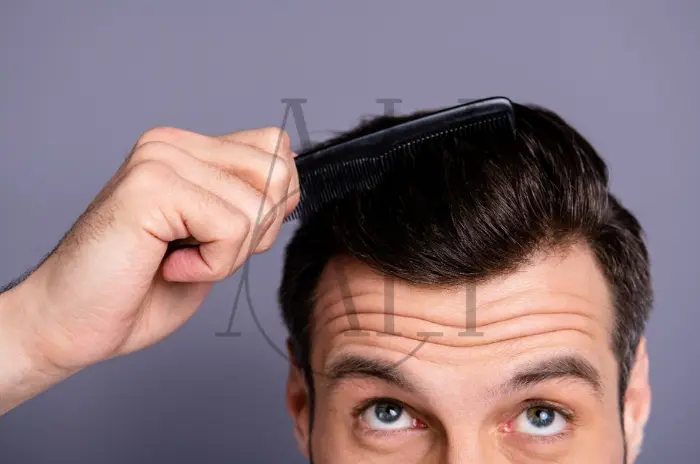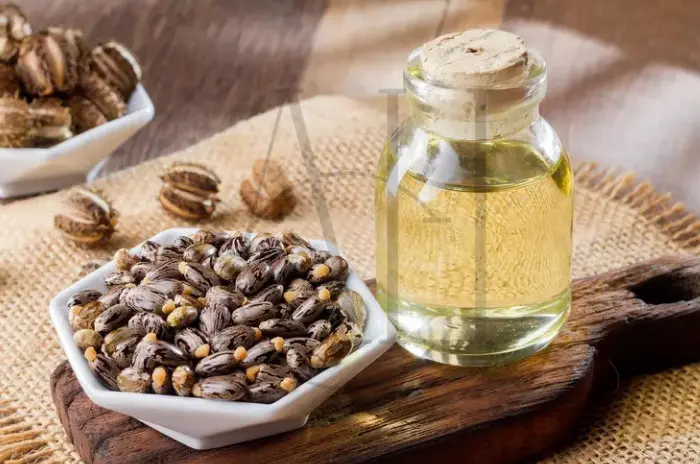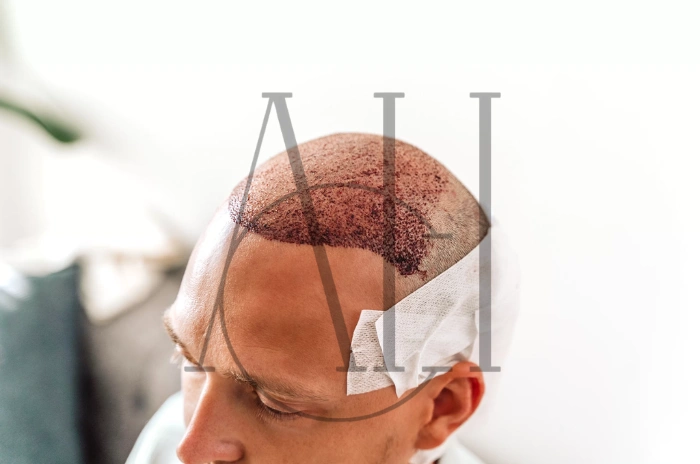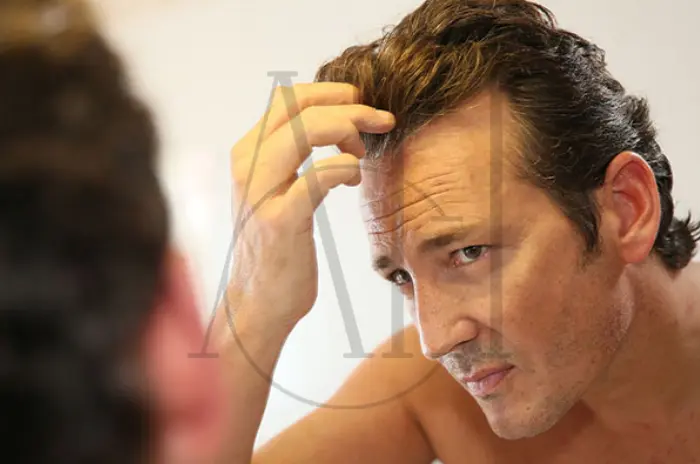Hair thinning affects millions of people worldwide, leading many to seek natural solutions for achieving thicker, healthier hair. While genetics play a significant role in hair density, numerous natural methods can help improve hair thickness and overall hair health. At Albania Hair intermediary organization, we believe in combining natural approaches with scientific understanding to help patients achieve their hair goals through safe, effective methods.
Table of Contents
ToggleEffective Ways to Thicken Hair Naturally
Natural hair thickening methods focus on optimizing the conditions for healthy hair growth while protecting existing hair from damage. These approaches work by nourishing hair follicles, improving scalp circulation, and strengthening hair strands from root to tip.
Key Natural Thickening Strategies:
- Scalp massage therapy: Increases blood circulation to hair follicles
- Essential oil treatments: Stimulate follicles and provide nutrients
- Protein-rich hair masks: Strengthen hair structure and prevent breakage
- Cold water rinses: Seal hair cuticles for improved thickness appearance
- Gentle hair handling: Minimize mechanical damage and breakage
DIY Natural Hair Thickening Treatments:
| Treatment | Key Ingredients | Application Method | Frequency | Expected Results |
|---|---|---|---|---|
| Egg Protein Mask | Whole eggs, olive oil | Apply to damp hair, leave 20 minutes | Weekly | Stronger, fuller hair |
| Avocado Deep Treatment | Avocado, honey, coconut oil | Massage into scalp and hair | Bi-weekly | Improved moisture and thickness |
| Rice Water Rinse | Fermented rice water | Use as final rinse after shampooing | 2-3 times weekly | Enhanced shine and volume |
| Castor Oil Massage | Pure castor oil, rosemary oil | Gentle scalp massage before bed | 2-3 times weekly | Stimulated growth, thicker strands |
Natural Styling Techniques for Fuller Hair: Proper styling can create the illusion of thicker hair while promoting actual thickness. Techniques include using volumizing products at the roots, blow-drying with a round brush to create lift, and avoiding tight hairstyles that can cause traction alopecia.
Environmental Protection Strategies: Protecting hair from environmental damage is crucial for maintaining thickness. This includes using UV protection, minimizing heat styling, avoiding harsh chemicals, and protecting hair during swimming in chlorinated pools.
Essential Vitamins and Nutrients for Hair Growth
Proper nutrition forms the foundation of healthy hair growth, with specific vitamins and nutrients playing crucial roles in hair follicle function and hair strand strength.
Critical Hair Growth Nutrients:
| Nutrient | Function | Food Sources | Recommended Daily Amount |
|---|---|---|---|
| Biotin (B7) | Keratin production | Eggs, nuts, seeds, fish | 30-100 mcg |
| Iron | Oxygen transport to follicles | Red meat, spinach, lentils | 18mg (women), 8mg (men) |
| Vitamin D | Follicle health and cycling | Fatty fish, fortified foods | 600-800 IU |
| Zinc | Protein synthesis and repair | Oysters, pumpkin seeds, beef | 8-11mg |
| Vitamin C | Collagen production, iron absorption | Citrus fruits, berries, peppers | 75-90mg |
B-Complex Vitamins for Hair Health: The B-vitamin family plays multiple roles in hair growth and thickness. B12 supports red blood cell formation, ensuring adequate oxygen delivery to hair follicles. Folate aids in cell division, crucial for rapidly growing hair cells. Niacin improves blood circulation to the scalp.
Protein Requirements: Hair is primarily composed of keratin, a protein structure requiring adequate amino acid intake. Adults should consume 0.8-1.2 grams of protein per kilogram of body weight daily, focusing on complete proteins containing all essential amino acids.
Omega-3 Fatty Acids: These essential fats support scalp health, reduce inflammation, and promote shine. Sources include fatty fish, walnuts, flaxseeds, and chia seeds. Regular consumption can improve hair texture and reduce brittleness.
Antioxidant Protection: Vitamins A, C, and E protect hair follicles from oxidative stress and free radical damage. These nutrients support collagen production and maintain healthy scalp tissue, creating optimal conditions for thick hair growth.
How Diet Impacts Hair Thickness and Health
The relationship between diet and hair health is profound, with nutritional deficiencies often manifesting as hair thinning, brittleness, and poor growth. A balanced diet provides the building blocks necessary for strong, thick hair.
Hair-Healthy Diet Principles: A diet that promotes hair thickness emphasizes whole foods, adequate protein, healthy fats, and a variety of vitamins and minerals. Processed foods, excessive sugar, and restrictive dieting can negatively impact hair health by creating nutritional deficiencies.
Foods That Promote Hair Thickness:
- Protein sources: Lean meats, fish, eggs, legumes, quinoa
- Iron-rich foods: Spinach, lentils, tofu, lean red meat
- Healthy fats: Avocados, nuts, seeds, olive oil
- Complex carbohydrates: Sweet potatoes, oats, brown rice
- Antioxidant-rich foods: Berries, leafy greens, colorful vegetables
Hydration and Hair Health: Adequate water intake is essential for maintaining scalp health and supporting nutrient transport to hair follicles. Dehydration can lead to dry, brittle hair that appears thinner and lacks luster.
Foods to Limit for Hair Health:
- High-sugar foods: Can lead to inflammation and hormonal imbalances
- Excessive alcohol: Interferes with nutrient absorption and dehydrates the body
- Highly processed foods: Often lack essential nutrients and contain harmful additives
- Trans fats: Promote inflammation and may negatively impact hormone levels
Meal Planning for Hair Health: Creating balanced meals that include protein, healthy fats, complex carbohydrates, and plenty of fruits and vegetables ensures consistent nutrient intake for optimal hair growth and thickness.

Common Causes of Hair Thinning
Understanding the underlying causes of hair thinning is essential for developing effective treatment strategies. Hair thinning can result from various factors, ranging from genetics to lifestyle choices.
Primary Causes of Hair Thinning:
| Cause Category | Specific Factors | Prevalence | Reversibility |
|---|---|---|---|
| Genetic | Androgenetic alopecia, family history | 95% of male hair loss | Manageable, not fully reversible |
| Hormonal | Thyroid disorders, PCOS, menopause | 20-30% of cases | Often reversible with treatment |
| Nutritional | Iron deficiency, protein malnutrition | 10-15% of cases | Highly reversible |
| Medical | Autoimmune conditions, medications | 5-10% of cases | Variable |
| Lifestyle | Stress, poor diet, harsh treatments | 15-20% of cases | Usually reversible |
Medical Treatments and Procedures for Hair Thickening
When natural methods aren’t sufficient, various medical treatments and procedures can effectively address hair thinning and promote thickness through scientifically proven approaches.
FDA-Approved Medications:
- Minoxidil: Available over-the-counter, increases blood flow to follicles
- Finasteride: Prescription medication that blocks DHT production
- Low-level laser therapy: FDA-cleared devices that stimulate follicles
Advanced Medical Procedures:
| Procedure | Mechanism | Success Rate | Recovery Time | Cost Range |
|---|---|---|---|---|
| PRP Therapy | Growth factor injection | 70-80% | Minimal | Moderate |
| Microneedling | Follicle stimulation | 60-70% | 1-2 days | Low-Moderate |
| Hair Transplant | Follicle redistribution | 90-95% | 1-2 weeks | High |
| Stem Cell Therapy | Regenerative medicine | 60-75% | Minimal | High |
Platelet-Rich Plasma (PRP) Therapy: This treatment involves drawing the patient’s blood, processing it to concentrate platelets, and injecting the plasma into the scalp. The growth factors in platelets can stimulate dormant follicles and improve hair thickness.
Microneedling for Hair Growth: Also called dermarolling, this procedure creates tiny wounds in the scalp that trigger healing responses and increase absorption of topical treatments. Regular sessions can improve hair density and thickness.
Hair Transplantation Options: For advanced hair thinning, surgical restoration through FUE (Follicular Unit Extraction) or FUT (Follicular Unit Transplantation) can provide permanent solutions by redistributing healthy follicles to thinning areas.
Best Products for Thicker Hair
Selecting the right hair care products can significantly impact hair thickness appearance and health. Understanding ingredient benefits helps consumers make informed choices for their specific hair needs.
Essential Product Categories:
- Volumizing shampoos: Create lift and remove buildup without stripping
- Thickening conditioners: Add body without weighing hair down
- Leave-in treatments: Provide ongoing nourishment and protection
- Styling products: Create volume and texture for fuller appearance
- Scalp treatments: Address underlying scalp health issues
Key Ingredients for Hair Thickening:
- Biotin: Strengthens hair structure and improves thickness
- Keratin: Fills in gaps in damaged hair cuticles
- Collagen: Provides amino acids for hair protein synthesis
- Caffeine: Stimulates blood circulation to hair follicles
- Peptides: Support follicle health and growth factors
Product Selection Guidelines: Choose products based on your specific hair type, scalp condition, and thinning pattern. Those with fine hair should avoid heavy oils and creams, while those with coarse hair may benefit from more intensive treatments.
Professional vs. Over-the-Counter Products: Professional-grade products often contain higher concentrations of active ingredients and undergo more rigorous testing. However, many effective over-the-counter options are available for budget-conscious consumers.
How Scalp Health Affects Hair Thickness
The scalp provides the foundation for healthy hair growth, making scalp health crucial for achieving and maintaining hair thickness. A healthy scalp environment supports optimal follicle function and hair production.
Signs of Healthy Scalp:
- Proper oil balance without excessive dryness or greasiness
- Absence of inflammation, redness, or irritation
- Good blood circulation with normal skin color
- Minimal flaking or scaling
- Comfortable sensation without itching or sensitivity
Common Scalp Issues Affecting Hair Thickness:
| Condition | Symptoms | Impact on Hair | Treatment Approach |
|---|---|---|---|
| Seborrheic Dermatitis | Flaking, redness, itching | Weak, thin hair | Medicated shampoos, topical treatments |
| Scalp Psoriasis | Thick scales, inflammation | Hair breakage, thinning | Prescription treatments, gentle care |
| Folliculitis | Small bumps, irritation | Damaged follicles | Antibacterial treatments |
| Dry Scalp | Tight feeling, small flakes | Brittle hair, breakage | Moisturizing treatments |
Scalp Care Best Practices: Regular scalp cleansing removes buildup and maintains healthy pH balance. Gentle massage during washing improves circulation, while avoiding harsh scrubbing prevents irritation. Using appropriate products for your scalp type is essential.
The Role of Scalp Massage: Regular scalp massage increases blood flow to hair follicles, potentially improving nutrient delivery and hair growth. Studies suggest that daily 4-minute massages may increase hair thickness over time.
Environmental Factors: Protecting the scalp from UV damage, pollution, and harsh weather conditions helps maintain scalp health. Wearing hats in sun exposure and using protective products can prevent damage that leads to hair thinning.
FAQ
Can a healthy diet really improve hair thickness?
Yes, a balanced diet rich in protein, vitamins, and minerals can significantly improve hair thickness. Nutrients like biotin, iron, zinc, and vitamin D are essential for healthy hair growth. Deficiencies in these nutrients often manifest as hair thinning, while adequate nutrition supports stronger, thicker hair strands.
What are the best products to thicken hair?
The best products include volumizing shampoos with biotin or caffeine, lightweight conditioners that don’t weigh hair down, leave-in treatments with peptides or keratin, and styling products that create texture and lift. Professional-grade products often contain higher concentrations of active ingredients for better results.
Do scalp massages actually help with hair growth?
Scientific studies suggest that regular scalp massage can increase hair thickness by improving blood circulation to hair follicles. Daily 4-minute massages using fingertips or massage tools may stimulate follicles and enhance nutrient delivery, though results typically require several months of consistent practice.
What are some common causes of hair thinning?
Common causes include genetics (androgenetic alopecia), hormonal changes (thyroid disorders, menopause), nutritional deficiencies (iron, protein, vitamins), chronic stress, certain medications, and harsh hair treatments. Identifying the underlying cause is crucial for selecting appropriate treatment strategies and achieving the best results.




